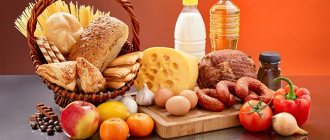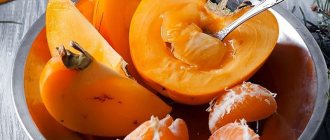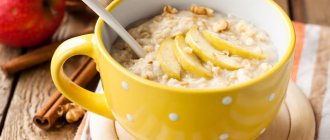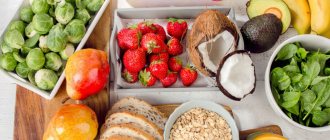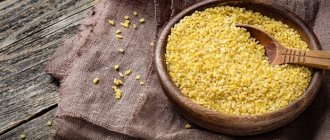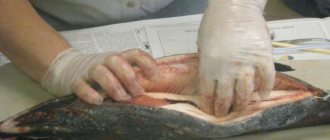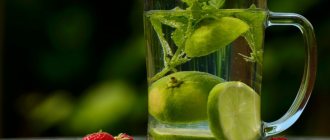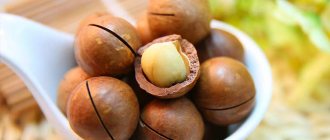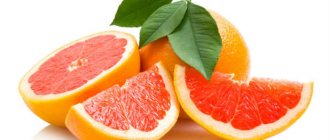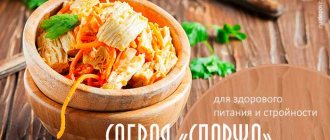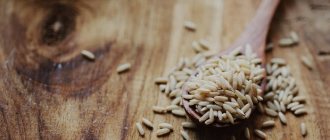Our diet affects not only our health, but also how energetic and productive we will be. High concentration of attention during work can be ensured by choosing the right diet.
The same applies to physical activity: a well-chosen menu will allow you to show excellent results in the gym and delight everyone with your endurance, strength and muscle function. Therefore, today we will talk about how to use nutrition to increase your productivity at work and during training.
If you have not yet taken our courses on dietetics, then you will definitely find this information useful and interesting. In general, read and take note...
How does food affect performance?
Properly balanced nutrition allows you to extract maximum energy from food. At the same time, it is important to provide the body with a sufficient amount of vitamins, minerals, and other nutrients , despite the fact that energy is taken mainly from carbohydrates and fats.
Only with a normal balance of beneficial microelements will the digestive system be able to fully absorb the same proteins, glucose, and fat. Otherwise, it will lead to excess weight. Thus, the body postpones “for later” what it cannot absorb now.
Why do some foods negatively affect performance? Because too much energy is spent on digesting them . These are complex proteins, animal fats, and some complex carbohydrates. The body undoubtedly needs them, but not in the quantities in which modern man consumes them. The same fast food, for example, is very nutritious and satisfying, but at the same time it contains an excessive amount of complex animal fats, but there are no vitamins or fiber at all.
It is also necessary to take into account that performance depends not only on physical, but also psychological health. “Mental productivity” also directly depends on diet.
How often should I use them?
It is immediately necessary to clarify that the above products should not be consumed regularly. Ideally, only before “planned” physical activity. In principle, you can follow the popular rules:
- breakfast – should be rich in simple carbohydrates, as this will help you cheer up as quickly as possible;
- lunch - without excessively fatty dishes, but always filling;
- dinner – simply hearty, without simple carbohydrates (complex ones are possible and even necessary).
And at the same time, 2–3 hours before your planned sleep, it is better to refuse food altogether. Otherwise, you can end up with chronic insomnia, from which even the most “energetic” breakfast will not help in the morning.
Top 6 best products
In order to combat chronic fatigue and fatigue, nutritionists recommend that their patients include in their diet: fatty fish, honey, eggs, oatmeal, and legumes. These and many other brain-healthy foods are affordable for absolutely everyone, but for some reason many people refuse them, preferring dishes high in animal fats. We will look at the 6 best food products below.
Fatty fish
It contains easily digestible protein and fat, minerals, vitamin B12 and, most importantly, omega-3 acids.
At the same time, carbohydrates in fish are at least literally 7 grams per 100 grams of meat.
However, its daily use has a positive effect on mental performance - this is precisely facilitated by the omega-3 acids necessary for the brain, which stimulate intercellular metabolic processes in the brain.
Honey
It contains a large amount of sugars, but they are predominantly complex carbohydrates. But there is no fat there at all.
In addition to carbohydrates, there is also a whole range of minerals, zinc, iron, and essential oils.
Consuming honey also has a positive effect on the functioning of the cardiovascular system and prevents oxygen starvation of brain cells, and a person’s mental endurance significantly depends on this.
5 facts about the effect of honey on the brain in a separate article.
Oatmeal
One of the simplest sources of carbohydrates, which begin to be actively absorbed within 5 minutes after consumption.
Ideally, oatmeal should be eaten with milk, yogurt and dried fruit. Such a “cocktail” will not only provide a boost of energy and improve your mood, but will also have a positive effect on the functioning of the entire digestive system - this determines how much energy the body can extract from one meal.
Legumes
They contain easily digestible proteins, carbohydrates, as well as vitamins and fiber.
It is also important that beans do not lose their nutritional properties during heat or any other culinary processing, so they can be consumed in almost any form.
Coffee
The caffeine contained in coffee helps you get a quick boost of energy and increase physical endurance. Coffee also improves memory, improves mood and stimulates brain function.
6 facts about the effect of coffee on the brain in a separate article.
However, you should not abuse this drink - it acts as a stimulant.
Doctors say that you can drink 2 standard cups of coffee per day (100 ml each) without any health consequences. It’s better for breakfast and lunch, but not after dinner.
Essential oils
Such oils have an effect on the sense of smell, which can be used to stimulate mental productivity .
Citrus and rosemary essential oils are best suited for this purpose. Moreover, only 5-10 minutes of aromatherapy session per day is enough - this will help relieve chronic feelings of fatigue and stimulate the production of serotonin.
the 6 most effective essential oils for energy and vigor in a separate article.
Essential oils are also found in many products and folk remedies. For example, in zest, in garlic, in viburnum. These oils are classified as dietary supplements and are involved in many physiological processes.
Also check out the infographic:
Now let's talk about unhealthy eating.
Serotonin and dopamine: each in its time
In general, simple carbohydrates, such as those found in pancakes, waffles, muffins and bagels, increase levels of serotonin , which helps us feel calm and satisfied. Protein, found in meat, nuts and eggs, increases dopamine , which gives you energy, motivation and focus. However, many people eat simple carbohydrates in the morning and eat more protein in the evening.
Thus, it is very common to feed children (and yourself) a breakfast consisting of donuts, pancakes, waffles, cereals, muffins, bagels or toast, as well as fruit juices (with concentrated sugar). Then the school day begins, we ask our children to concentrate, it causes them problems, and we start to think that they have ADHD (attention deficit hyperactivity disorder). The simple fact is that simple carbohydrate-based meals cause a release of insulin, which can lead to a rapid drop in blood sugar, resulting in brain fog.
In addition, simple carbohydrates increase serotonin levels in the brain - so we feel happier after eating. The problem is that serotonin can reduce a person's ability to achieve their goals, it promotes a state of carefree attitude towards life. And this is not the best psychological attitude for study or work.
Foods rich in protein tend to have the opposite effect. It increases dopamine levels in the brain, which means it increases motivation and helps you concentrate. That's why it makes sense to eat a protein-rich meal early in the day and only eat it for dinner if you need to complete some work in the evening. If you want to relax in the evening and go to bed early, I recommend reducing your protein intake and eating healthy carbohydrate meals.
Often, when children come home from school, parents give them cookies and soda - foods rich in simple carbohydrates. And then they ask the children to do their homework. Unfortunately, these parents unwittingly reduce their children's ability to concentrate, and this leads to a stressful evening for everyone.
Not everything is so simple (editor's note) The author does not take into account one simple physiological fact: proteins are digested and broken down in the body for quite a long time (about 12 hours). Thus, a protein dinner just starts “working for you” in the morning. Carbohydrates are absorbed faster than proteins, and a carbohydrate-rich dinner will most likely go entirely to fat deposits during sleep (since there will be nowhere to spend the energy of digested carbohydrates in the evening).
What foods should you avoid?
But it is recommended to either avoid the following foods that are harmful to the brain or reduce their presence in the daily diet - this will help avoid that very feeling of fatigue:
- Fast food. Its main drawback is that such dishes are not balanced. They contain a lot of animal fat and little protein (since they are cooked through thermal cooking). The body spends a lot of energy to digest such a dish.
- Alcohol. A huge amount of energy is also spent on “neutralizing” it. Plus, ethyl alcohol acts as a poison on neurons, which impairs brain function.
- Mayonnaise, ketchup and other “store-bought” sauces. In most cases, they are based on palm fat, which is practically not absorbed by the body. But when it enters the gastrointestinal tract, the production of both enzymes and gastric juice is stimulated - all this is extra energy expenditure.
- Trans fats. This can include margarine, spreads, and various types of sausages. Trans fats are extremely difficult to digest and are most often deposited in the subcutaneous fat layer. They produce minimal energy, but a lot of kilocalories are spent on absorption. Another nuance is that trans fats often lead to the development of atherosclerosis, which disrupts the absorption of micronutrients by body tissues.
What should you eat before training?
The diet for athletes is somewhat different from the usual. Firstly, it includes more carbohydrates - they help maintain tone during grueling workouts, and secondly, it includes proteins - with their help, muscle mass is built.
Therefore, to obtain energy before training, it is recommended to consume:
- turkey omelette;
- oatmeal;
- cabbage rolls with chicken;
- baked chicken with sweet potatoes;
- cottage cheese with fruit.
All this is also complemented by protein bars and shakes. Many manufacturers produce sports nutrition in the form of ready-made mixtures for use before training - they consist of approximately 2/3 protein (which is the very protein), simple and complex carbohydrates. They give a great surge of strength and energy, helping to wake up the body and brain for the upcoming workout.
But in order not to feel a loss of strength after training, you should literally eat a small portion of sweets in the first 30 minutes after physical activity. It could be a chocolate bar, yogurt, banana, orange, tea with honey.
Other Important Recommendations
In addition to correcting the diet, experts recommend adhering to the following rules:
- Drink at least 2 liters of water. When the salt balance is disturbed, the entire digestive system experiences increased stress. And excess sodium begins to act as a toxin on the nervous system. For more information on why the brain needs water, see a separate article.
- Walk outdoors as often as possible. The body receives a significant proportion of its energy from oxygen. And the higher the blood oxygen saturation, the higher the brain performance.
- Eat energizing fruits and vegetables as often as possible. They contain fiber - with its help, intestinal motility is accelerated, food is fully absorbed.
Folk remedies to keep the body in good shape
In addition to nutrition that gives strength, there are a lot of folk methods and herbs for sleep that help you get a quick boost of energy in the morning - this can be done not only with coffee. Vivid examples of this are citrus essential oils, bran infusion, rose hip jelly.
Essential oils
There are certain essential oils for increasing energy. Their peculiarity is that they help cope with psycho-emotional fatigue . And citrus and rosemary essential oils are best suited for this.
How to use them? It is enough to add 3 – 5 drops to the aroma lamp (or 2 – 4 drops to the diffuser). They can also be added, for example, to a hot bath. 1 – 2 such “therapy” per day will be more than enough.
Bran infusion
One of the most popular remedies against chronic fatigue is energy tinctures.
Prepare as follows:
- Mix 200 grams of bran with 1 liter of cold water;
- bring to a boil and cook for 1 hour;
- After cooling, strain through cheesecloth or a sieve.
Take 100 - 200 milliliters 3 - 4 times a day . The minimum course of “treatment” is 2 weeks. This remedy is also an excellent method for cleansing the intestines of accumulated toxins.
Rose hip jelly
This invigorating drink provides the body with a large amount of ascorbic acid, which helps cope with fatigue due to infectious diseases. Prepare like this:
- chop 2 tablespoons of rosehip (fresh or dried - it doesn’t matter) and pour 0.5 liter of boiling water;
- Cover the container containing the mixture with a lid, wrap it in a thick towel and let it sit until it cools completely.
You can add 1 tablespoon of honey to the finished jelly.
Take during dinner as a dessert - in the morning you will feel many times more energy reserves.
Let us also remind you that in the last article we looked at 5 effective invigorating teas based on various herbs.
